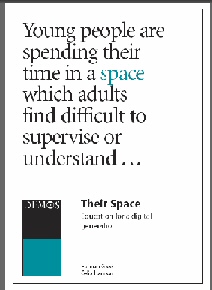If you're in the process of planning an ICT (Technology) Co-ordinators' Day -- or really any other kind of similar event -- then this article from 2 years ago should help.
Read MoreHere are 4 posts from about 18 months ago dealing with why schools cannot ignore Web 2.0.
Read MoreA year ago today I put forward some ideas for teaching youngsters how to take responsibility for their digital footprint. A year on, the article is still relevant in my opinion.
Read MoreWhen I walk into a shop and immediately get pounced on by a sales assistant, I usually beat a hasty retreat. If they’d have just left me alone, I might have bought something.
Read MoreHere's just a quick heads-up. I discovered that one of the most popular articles on this website is one I wrote back in November 2009, so at the risk of creating a self-fulfilling prophecy, I thought I'd let you know about it in case you weren't aware of it.
Read MoreBeing appointed to a leadership position gives you some power, but it does not automatically give you authority.
What is the difference between power and authority? I think it can be summarised fairly simply, as follows.
Read More







